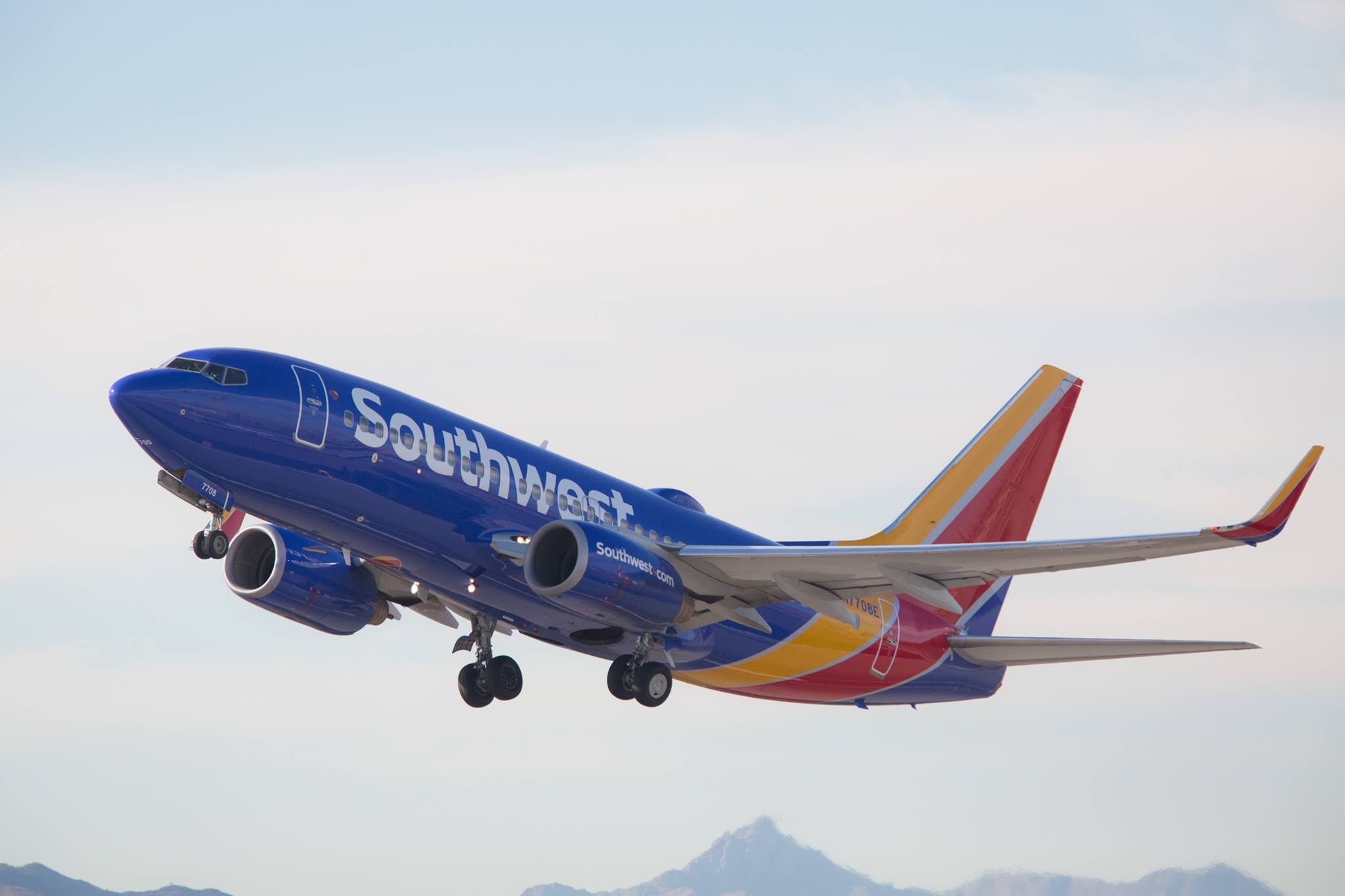The Motley Fool's readers have spoken, and I have heeded your cries. After months of pointing out CEO gaffes and faux pas, I've decided to make it a weekly tradition to also point out corporate leaders who are putting the interests of shareholders and the public first and are generally deserving of praise from investors. For reference, here's my previous selection.
This week, we'll head into unchartered territory and I'll show you why Southwest Airlines (LUV 1.16%) CEO Gary Kelly is truly an incredible and innovative force in the airline industry.
Kudos to you, Mr. Kelly
When comparing the pros and cons of the airline industry, there are two primary reasons airline companies are worth buying: They have a safer track record than automobiles and are the only time-feasible way to get across the country. On the flipside, there are about 1 million reasons airlines should have permanent caution tape surrounding them from an investors' perspective.
Airlines have no choice but to go along for the ride with the economy, meaning that even with hedges, rising fuel prices and weak travel demand can drastically affect their bottom line. Furthermore, the need to be more fuel and space efficient requires the constant upgrading/purchasing of planes, which is, in itself, very costly. Since 1990 we've seen more than 100 airline bankruptcies, including every major carrier since 2002. US Airways (NYSE: LCC), for instance, may be the talk of the town now that it's merging with AMR, but keep in mind, as well, that it declared bankruptcy twice last decade and still sports $2.4 billion in net debt.
In short, the airline industry is the antithesis of efficient, yet Southwest Airlines has managed to shine under CEO Gary Kelly's leadership.

Source: Altair, commons.wikimedia.org
Southwest has turned in an annual profit in 40 (yes, 40!) consecutive years. This means during the high-interest Reagan administration, the Gulf War, the Internet bubble, the terrorist attacks on the Twin Towers, and the Great Recession, it still stayed profitable!
Southwest's comparative advantage over its peers can be broken down into a number of key components; the first of which is its focus on filling in where its competitors fail.
Southwest is now the nation's largest domestic airline because it focused on underutilized routes that were near, but not necessarily in, major metropolitan areas. Directing its routes to suburbs of metropolitan areas allowed it to undercut national carriers on price, while also keeping its planes in the air longer. If you've ever flown into LAX versus Burbank's airport in Southern California, you know exactly what I'm talking about here. By contrast, national carrier Delta Air Lines (DAL 1.44%) has eight domestic hubs it runs out of, and trying to so much as change a route from even one of these hubs because of costs could create a firestorm among regular passengers.
Another key point to Southwest's success has been its constant focus on giving the customer top value among domestic carriers. You'll certainly find a cheaper upfront ticket price if you look around for domestic flights from a small regional carrier like Allegiant Travel (ALGT 2.00%) or Spirit Airlines (SAVE +0.00%). Then again, Southwest doesn't charge for the first two checked bags, whereas Allegiant and Spirit charge for both each checked bag as well as carry-on bags! Southwest's keep-it-simple approach and easy-to-understand pricing have been instrumental in winning over passengers.
A step above his peers
In addition to delivering a bottom-line profit year-after-year, Southwest and its CEO, Gary Kelly, have done a great job taking care of its shareholders, its employees, and the communities it operates in.
As my Foolish colleague Dan Caplinger so eloquently put it when Southwest Airlines more than doubled its dividend in June, "Investors shouldn't get too excited about it." That would be because it boosted its payout by just a fraction of a penny to exactly $0.01 per quarter. Although its current yield of 0.3% isn't likely to get any income-seekers' attention, the simple fact that it can pay a dividend in lieu of highly volatile jet fuel prices is incredibly encouraging. In addition, Southwest repurchased 62 million shares (7.6% of outstanding shares) between 2003 and 2012, which helps add value to existing shareholders.
What you'll find with Southwest is that its employee benefits are one of the prime reasons people choose to work for the company. On top of letting employees, spouses, and dependent children fly free domestically, Southwest matches employees' 401(k) contributions dollar-for-dollar up to an amazing 9.3% of their salary, contributes to an annual profit-sharing fund for employees, and allows its employees to purchase Southwest stock at a 10% discount to current market value. Employees can also choose to help each other out by donating to an employee catastrophe fund that helps those Southwest employees affected by natural disasters.
The spirit of giving also extends far beyond personal employee benefits. Southwest, through its annual golf tournaments, has raised $9.7 million for Ronald McDonald Houses, which primarily benefits children and their families. Southwest has also partnered with the USO to provide phone cards to troops overseas so they can call their family and friends back home.
Two thumbs up
I know for a fact that airlines certainly aren't anywhere near the top of my list when it comes to solid investments, but Gary Kelly and Southwest Airlines have done the impossible by completely bucking that overwhelming negative sentiment. Southwest's immediate plans involve integrating its AirTran purchase and expanding overseas which should help reinvigorate bottom line growth. Coupled with its simple pricing strategy and focus on hitting underutilized markets while taking good care of its employees who make its success possible, Southwest looks likely to continue flying even higher. I'd say that's more than ample reason to give Gary Kelly two well-deserved thumbs up.








